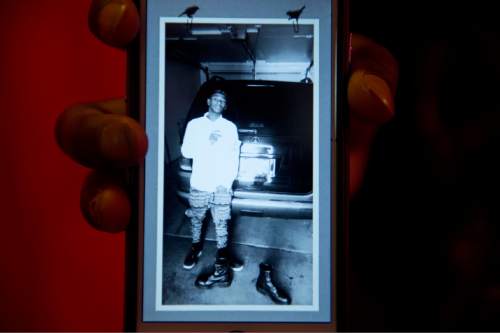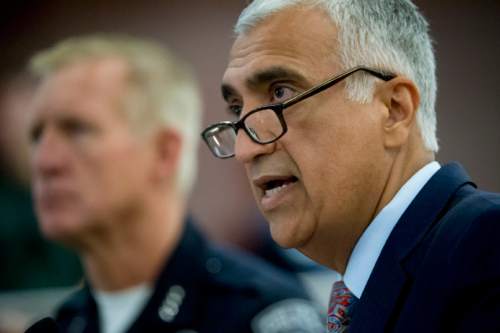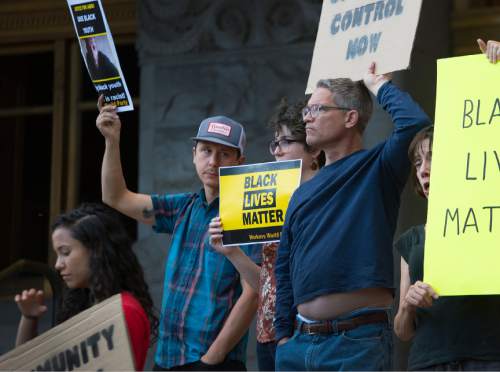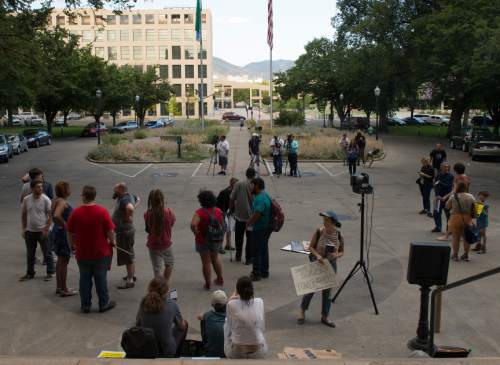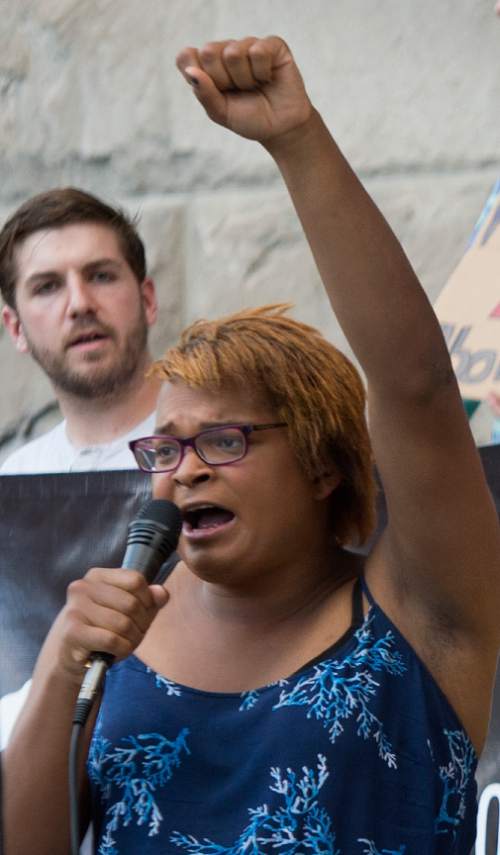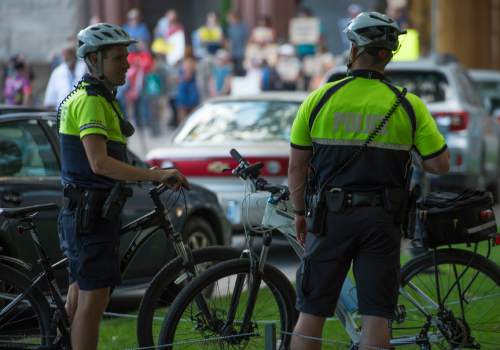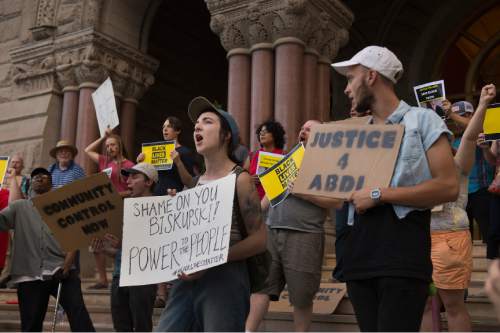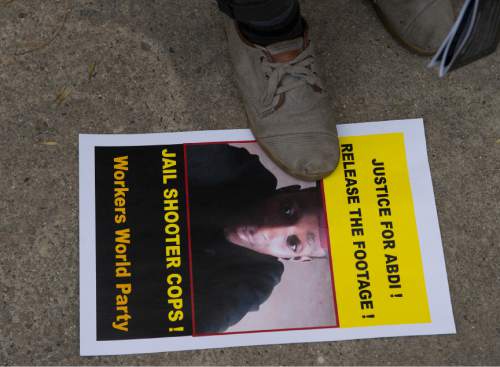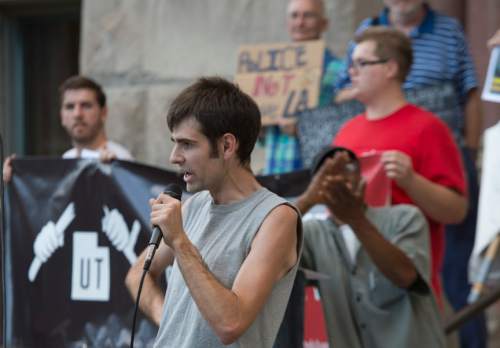This is an archived article that was published on sltrib.com in 2016, and information in the article may be outdated. It is provided only for personal research purposes and may not be reprinted.
Nick Godfrey made some assumptions the night 17-year-old Abdullahi "Abdi" Mohamed was shot.
As Godfrey got off the train after 8 p.m. near his home — across from the Road Home shelter — on Feb. 27, he saw the red, blue and white flashing light of police cars and watched officers charge forward with shields and batons. He heard someone shout, "They shot my cousin, they shot my baby cousin." Without hesitation, Godfrey recalled while speaking to a small crowd of protesters Tuesday night, he assumed: They've shot another black kid.
"I assumed the victim was black and young," Godfrey said. "I assumed over the next few months police would stall and deny us activists the footage. I was safe in all those assumptions because we live under a system of white supremacy."
Godfrey, 27, a white man, was one of about 25 people at an "emergency rally" at City Hall on Tuesday to protest the decision the two police officers who shot and critically wounded Mohamed will not face criminal charges. Salt Lake County District Attorney Sim Gill announced Monday that the two officers were justified in firing their weapons outside the downtown homeless shelter at 210 S. Rio Grande St. when responding to an alleged assault.
Mohamed, a Somali refugee, survived the shooting after he was initially put in a medically induced coma; he remained in a wheelchair this week. Mohamed faces charges in 3rd District Juvenile Court — though prosecutors seek to have him tried as an adult — for aggravated robbery, a first-degree felony, and drug possession with intent to distribute, a second-degree felony.
The Salt Lake Tribune typically does not identify juveniles charged with crimes, but Mohamed's family identified him publicly after the shooting. Accounts of what happened that night vary among police, bystanders and Mohamed.
Protesters on Tuesday, though, agreed on something: calling for the resignation of Gill and Salt Lake City Mayor Jackie Biskupski. Hayven Jackson, the African-American emcee for the evening rally, said the two public officials have reinforced racial biases in "choosing to uphold two corrupt officers."
"That is unconscionable. That is unacceptable. That is disgusting," Jackson said, later adding, "They do not represent brown people in the city."
One demonstrator carried a white poster that read "Shame on you Biskupski!" and another held a piece of cardboard with "Justice 4 Abdi" written across it in black marker. The group chanted "black lives matter" and "f—- the police" as employees quietly filed out of City Hall about 7:30 p.m.
An African-American man who identified himself as Brother Al called Gill "spineless" and said justifying the shooting "was an act of hate."
Gill invites protesters to discuss the case with him during resident meetings that he hosts, according to The Associated Press. He has denied requests since the shooting, though, to release police video of the incident — which demonstrators called for by chanting "release the footage."
Stephen Michael Christian, a white man, called the shooting of Mohamed "attempted murder" with police viewing the teen as "another disposable life." It's a "backwards legal system," he said, when the officers are cleared and the victim is charged. Jackson added that charging Mohamed, now 18, as an adult is a form of institutional racism against offenders of color, one that could "leave him behind bars for life."
"We demand justice for Abdi," Jackson said. "We're not asking for justice — we demand it."
Christian handed out pamphlets at the rally, calling for a civilian review board with the authority to change police policy, discipline officers and investigate use-of-force cases.
The 40-minute rally had a smaller turnout than previous demonstrations in Utah, such as one that had 200 attendees in early July. The smaller showing likely was because it was a Tuesday night, Jackson said, and people had work the next day. Nevertheless, Jackson maintained, the message was strong: Police officers and government officials need to respect the lives of people of color.
"We're done with their corruption," Jackson said. "We're done with them not valuing black lives."
Twitter: @CourtneyLTanner


